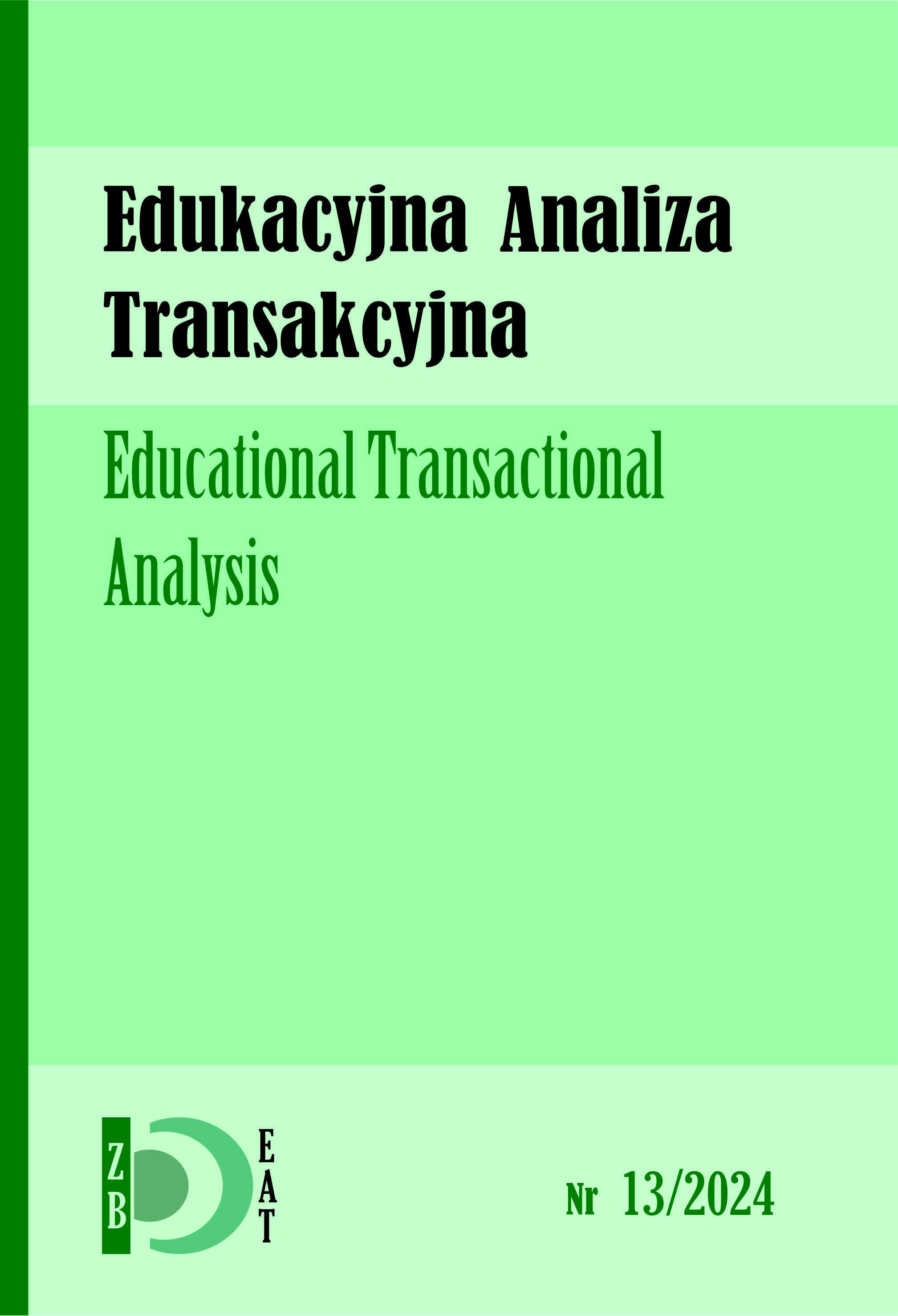Good practices in the field of military training in the field of cybersecurity
- Authors
-
-
- Keywords:
- good practices, training, cybersecurity, IT, ICT, information security, administration, Help Desk, Service Desk
- Abstract
-
The aim of the article was to determine the impact of good practices in the IT area on the training of soldiers in the area of cybersecurity. In order to achieve the goal, the author in the article characterized the centers and forms of training in the Armed Forces in the field of cybersecurity and determined the impact of the increasing number of basic and dedicated IT services, as well as technical and organizational solutions of command support systems on the process of training soldiers of the Communications and IT Forces in the field of cybersecurity. As a practical goal of the article, the author has adopted the determination of the probable direction of change in the method of training in terms of implementation and expansion of ICT systems and services used. In the article, the author presented the capabilities that should be achieved by military IT specialists in order to effectively perform tasks, characterized good practices used in the ICT support system. The cognitive objective of the article was to identify the determinants that affect
- Downloads
-
Download data is not yet available.
- Author Biography
- References
-
Bogdański, A. (2022). Federated Mission Networking w ujęciu narodowych dokumentów doktrynalnych: Aspekt bezpieczeństwa teleinformatycznego. In M. Marczyk, M. Stolarz, & B. Terebiński (Eds.), Bezpieczeństwo działań w cyberprzestrzeni: wybrane aspekty (Vol. 2, Techniczne aspekty cyberprzestrzeni, pp. 49–67). Wydawnictwo Akademii Sztuki Wojennej.
Bogdański, A., & Barański, Ł. (2014). Wybrane rozwiązania oraz usługi wdrożone w sieciach teleinformatycznych Wojsk Lądowych. Bezpieczeństwo i Administra-cja. Zeszyty Naukowe Wydziału Bezpieczeństwa Narodowego, 1(1), 167–180.
Bogdański, A., & Zelichowski, A. (2013). Możliwości wykorzystania wojskowych sie-ci informatycznych w celu prowadzenia badań społecznych w resorcie obrony narodowej. Obronność – Zeszyty Naukowe Wydziału Zarządzania i Dowodze-nia Akademii Obrony Narodowej, 2(6), 5–19.
Borawska-Kalbarczyk, K. (2024). Edukacja jutra wobec wykorzystania technologii cyfrowych – nowe odpowiedzi na stare pytania. In D. Morańska & P. Oleśnie-wicz (Eds.), Edukacja jutra (pp. 147–159). Oficyna wydawnicza Humanitas
Ostolski, P. (2020). Kompetencje nauczyciela przedmiotu edukacja obywatelska. Proces kształcenia uczniów wybranych klas mundurowych szkół ponadgimna-zjalnych prowadzących przedmiot nauczania edukacja wojskowa. In P. Ostol-ski & Z. Leśniewski (Eds.), Proces Kształcenia uczniów wybranych klas mun-durowych szkół ponadgimnazjalnych prowadzących przedmiot nauczania edukacja wojskowa (pp. 183–193). Wydawnictwo Akademii Sztuki Wojennej.
Ostolski, P. (2021). Culture functions for creating security culture. Security Dimen-sions, 37(3/2021), 78–90. https://doi.org/10.5604/01.3001.0015.3294
Pelc, M. (2012). Elementy metodologii badań naukowych (wyd. 1). Wydawnictwo Akademii Obrony Narodowej.
Dowództwo Generalne Rodzajów Sił Zbrojnych. (2017). Program szkolenia pododdziałów wojsk łączności i informatyki, Dow. Gen. wewn. 79/2017
https://biblioteka.awl.edu.pl/sowacgi.php?KatID=0&typ=record&001=WROC%20WSO17000710
Minister Obrony Narodowej. (2023, 24 listopada). Rozporządzenie Ministra Obrony Naro-dowej zmieniające rozporządzenie w sprawie korpusów osobowych, grup osobowych i specjalności wojskowych (Dz.U. 2023 poz. 2606). https://sip.lex.pl/akty-prawne/dzu-dziennik-ustaw/zmiana-rozporzadzenia-w-sprawie-korpusow-osobowych-grup-osobowych-i-21901485
Szkolenie. (n.d.). W Słownik języka polskiego. PWN. https://sjp.pwn.pl/slowniki/szkolenie.html
Sejm Rzeczypospolitej Polskiej. (2022, 11 marca). Ustawa o obronie Ojczyzny (Dz.U. 2024 poz. 248). https://sip.lex.pl/akty-prawne/dzu-dziennik-ustaw/obrona-ojczyzny-19220069
ITIL w wersji 4 już dostępny. (n.d.). Compen-dium. https://www.compendium.pl/info/2023/itil-w-wersji-4-juz-dostepny
- Downloads
- Published
- 2024-12-30
- Issue
- No. 13 (2024)
- Section
- On the border of fields
- License
-
Copyright (c) 2024 Andrzej Bogdański

This work is licensed under a Creative Commons Attribution 4.0 International License.
AUTHOR'S STATEMENT
I am aware that the Educational Transactional Analysis journal is published under a Creative Commons license - Attribution (https://creativecommons.org/licenses/by/4.0/legalcode).
By submitting the article, I agree to make it available under this license
How to Cite
Similar Articles
- Irena Przybylska, Ideologies and practice of emotional education at school – interactional perspective , The Educational Transactional Analysis: No. 11 (2022)
- Amanda Lacy, Integrating TA concepts into team meetings through micro-learning approaches , The Educational Transactional Analysis: No. 9 (2020)
- Sabina Pawlik, Magdalena Wala, It’s not that I'm "abnormal". Social and emotional experiences of women with autism spectrum (AS) related to the diagnosis in adulthood , The Educational Transactional Analysis: No. 13 (2024)
- Piotr Jusik, Educational passivity – from theory to practice , The Educational Transactional Analysis: No. 9 (2020)
- Zbigniew Łęski, The Profile of Ego States and the Experience of Positive and Negative Emotions in the Context of Cyber Threat Vulnerability , The Educational Transactional Analysis: No. 13 (2024)
- Dorota Anna Siemieniecka, Communicators in e-learning – recommendations for teaching practice at the times of coronavirus COVID-19 – report from pilot research , The Educational Transactional Analysis: No. 9 (2020)
- Jan Kornaj, The development of the psychotherapy of psychoses in Transactional Analysis , The Educational Transactional Analysis: No. 14 (2025)
- Jarosław Jagieła, dr hab.prof. AJD, Bert Hellinger's Systemic Family Constellation Method from the Perspective of Transactional Analysis , The Educational Transactional Analysis: No. 6 (2017)
- Beata Bogusławska-Kręgiel, mgr, Smartphone as a tool for teaching and communicating with students , The Educational Transactional Analysis: No. 7 (2018)
- Katarzyna Adamczyk, Artificial intelligence in media education: potential, challenges and prospects , The Educational Transactional Analysis: No. 14 (2025)
You may also start an advanced similarity search for this article.


